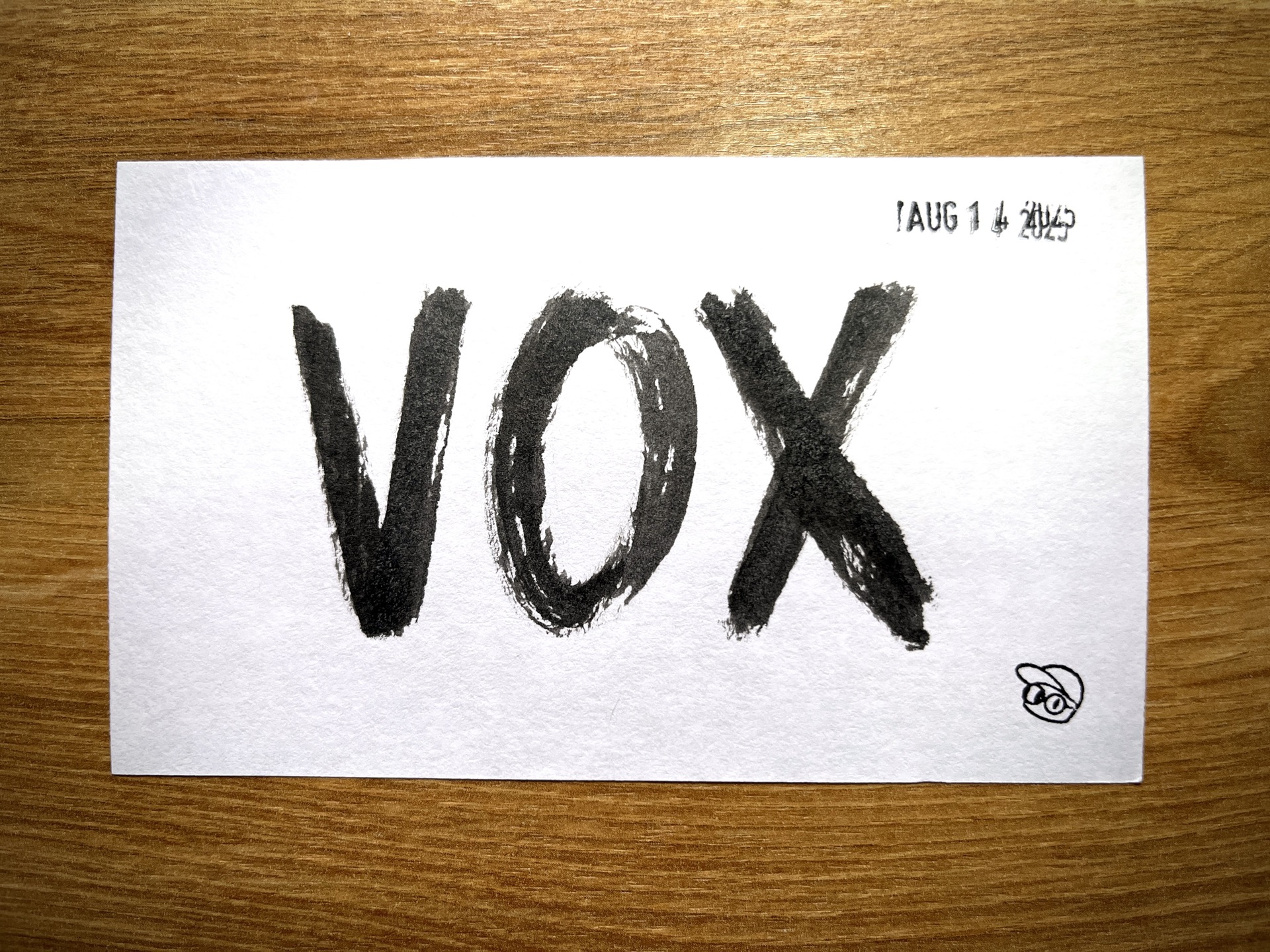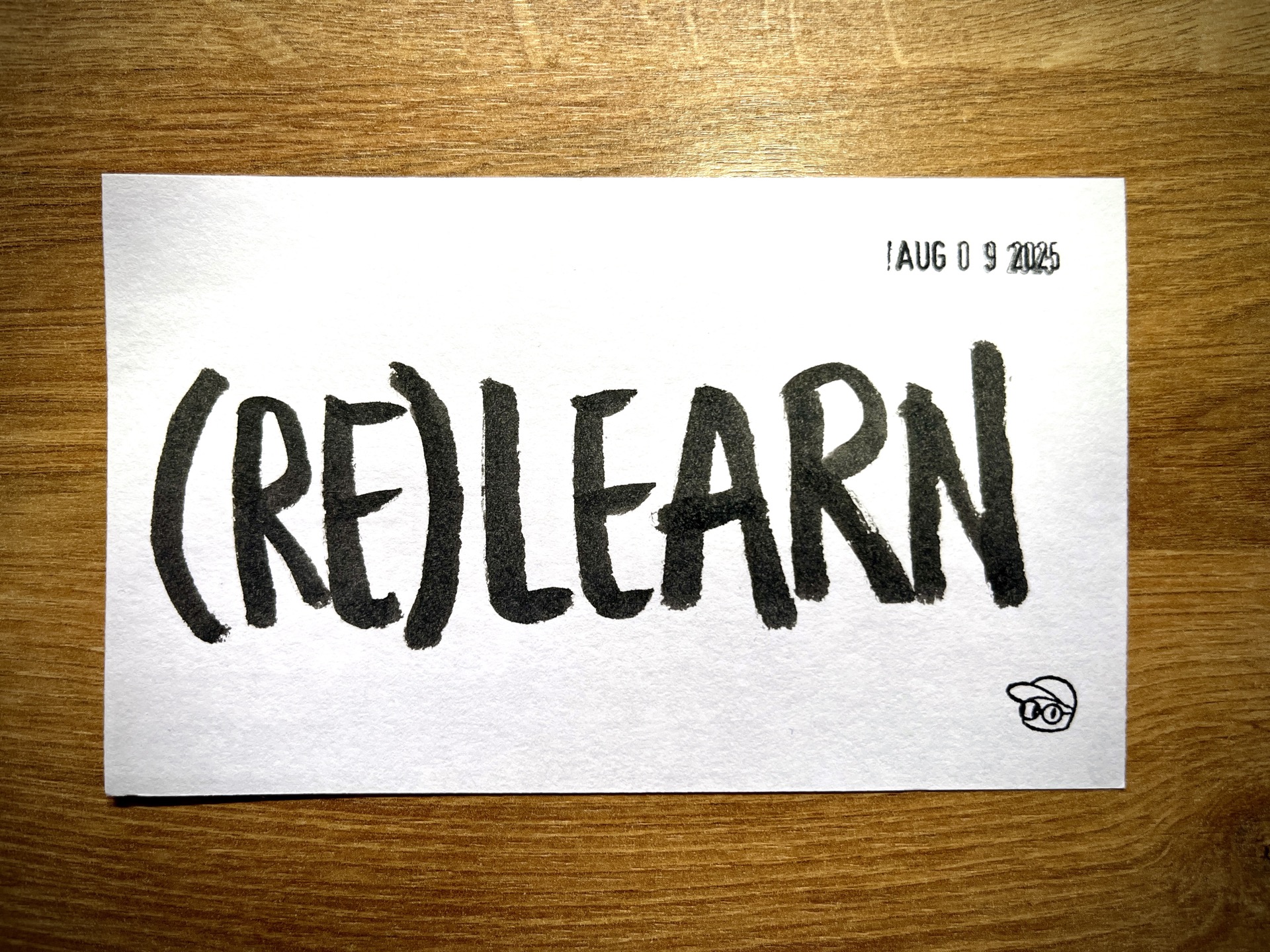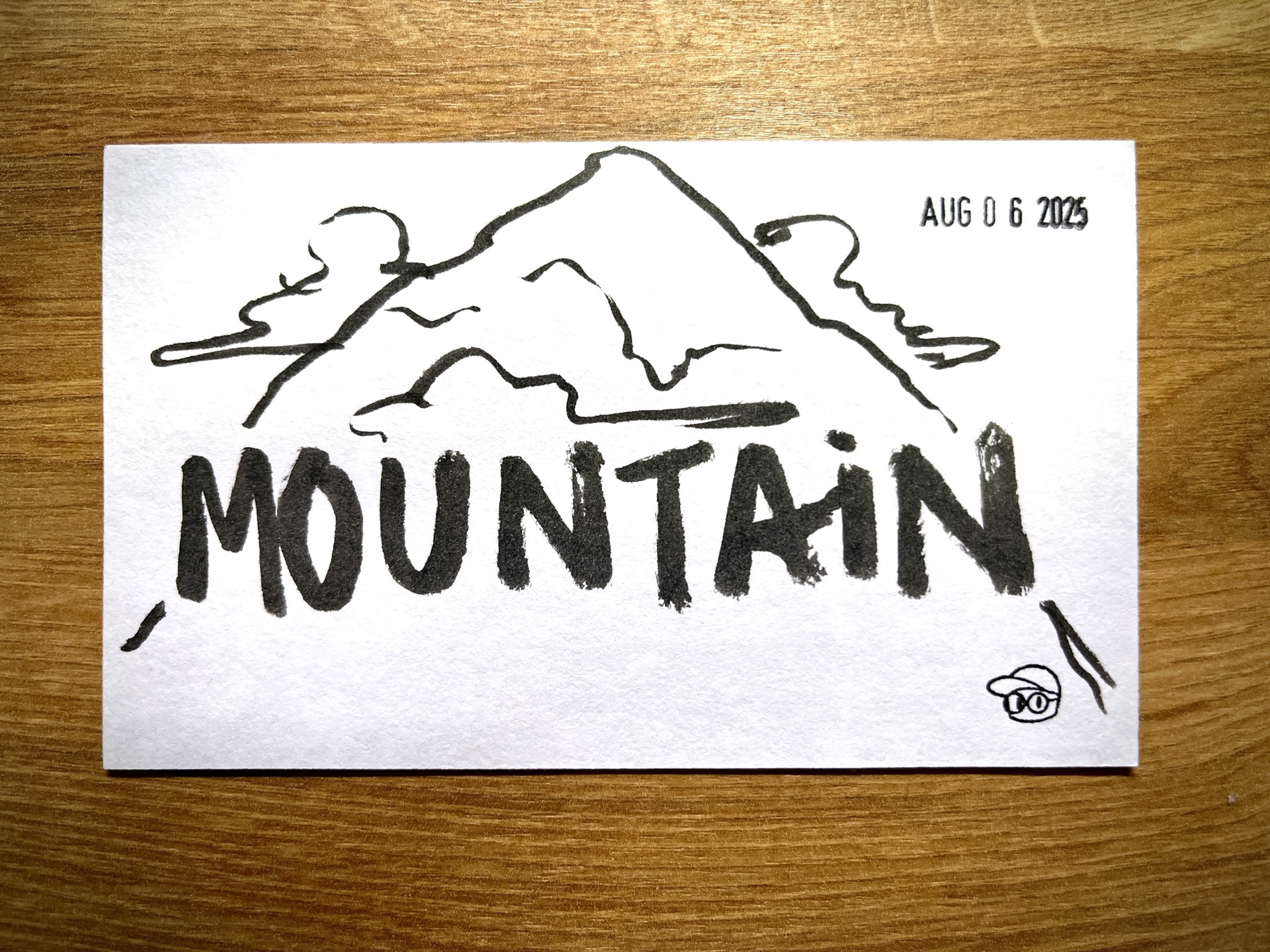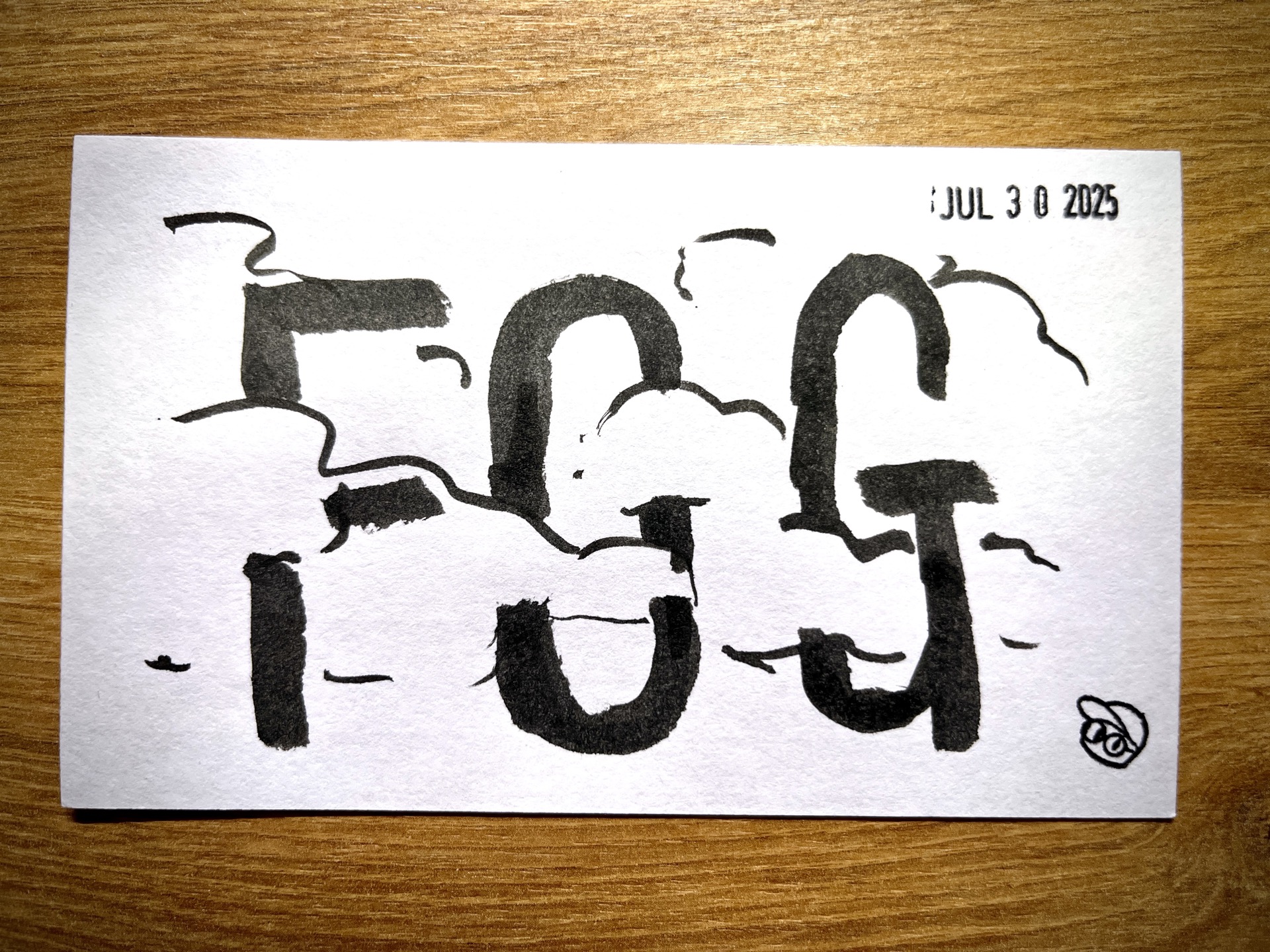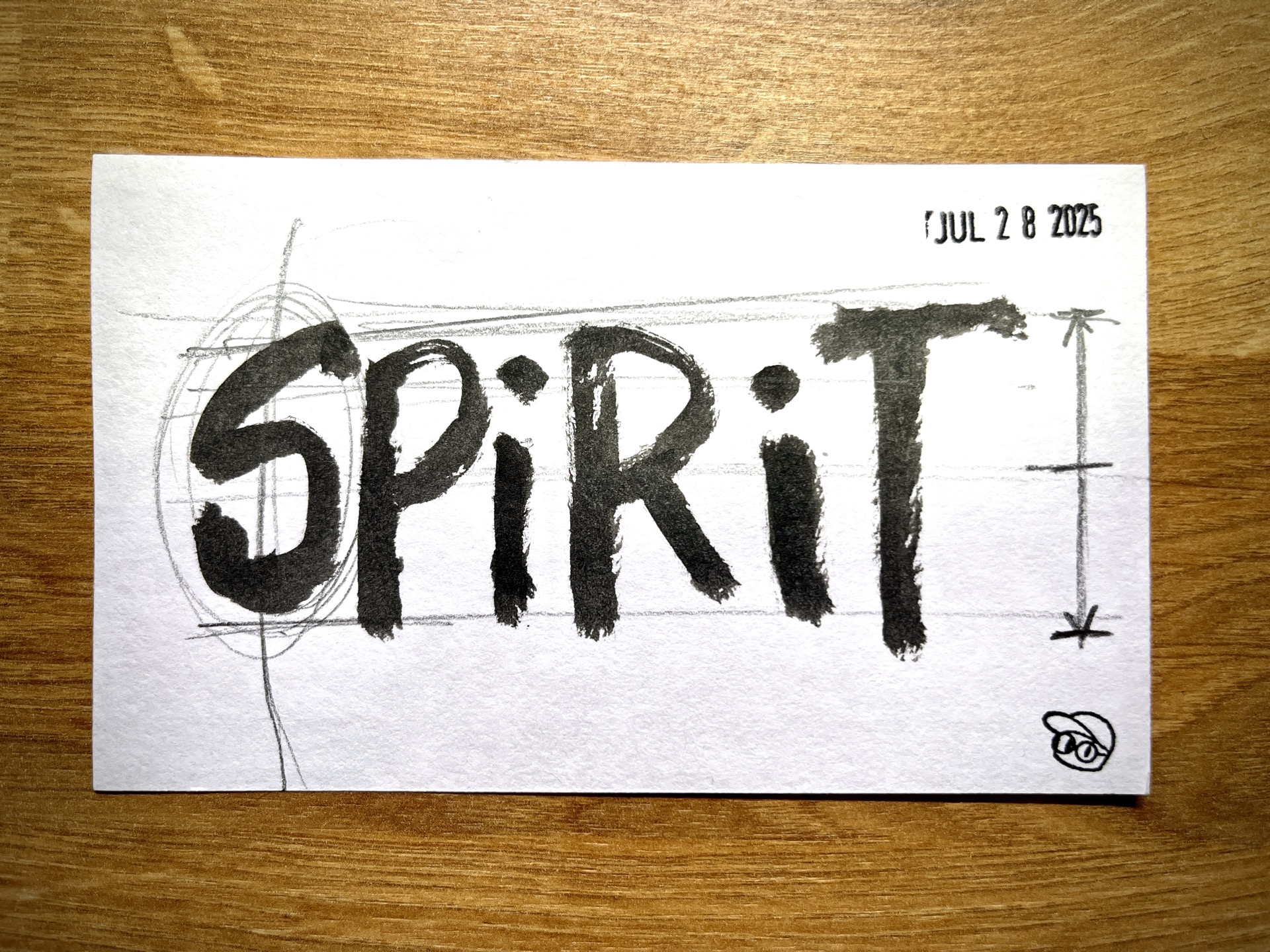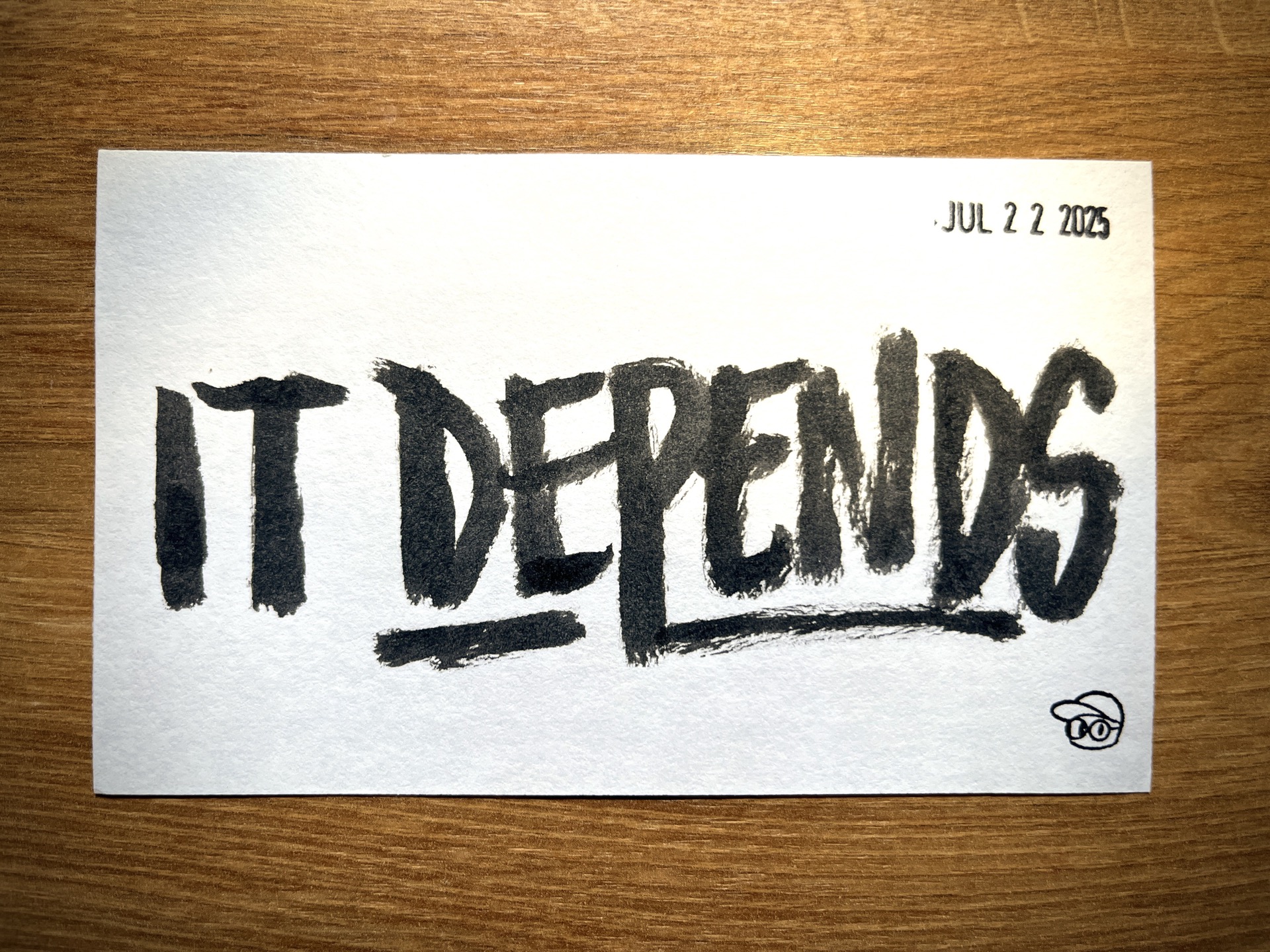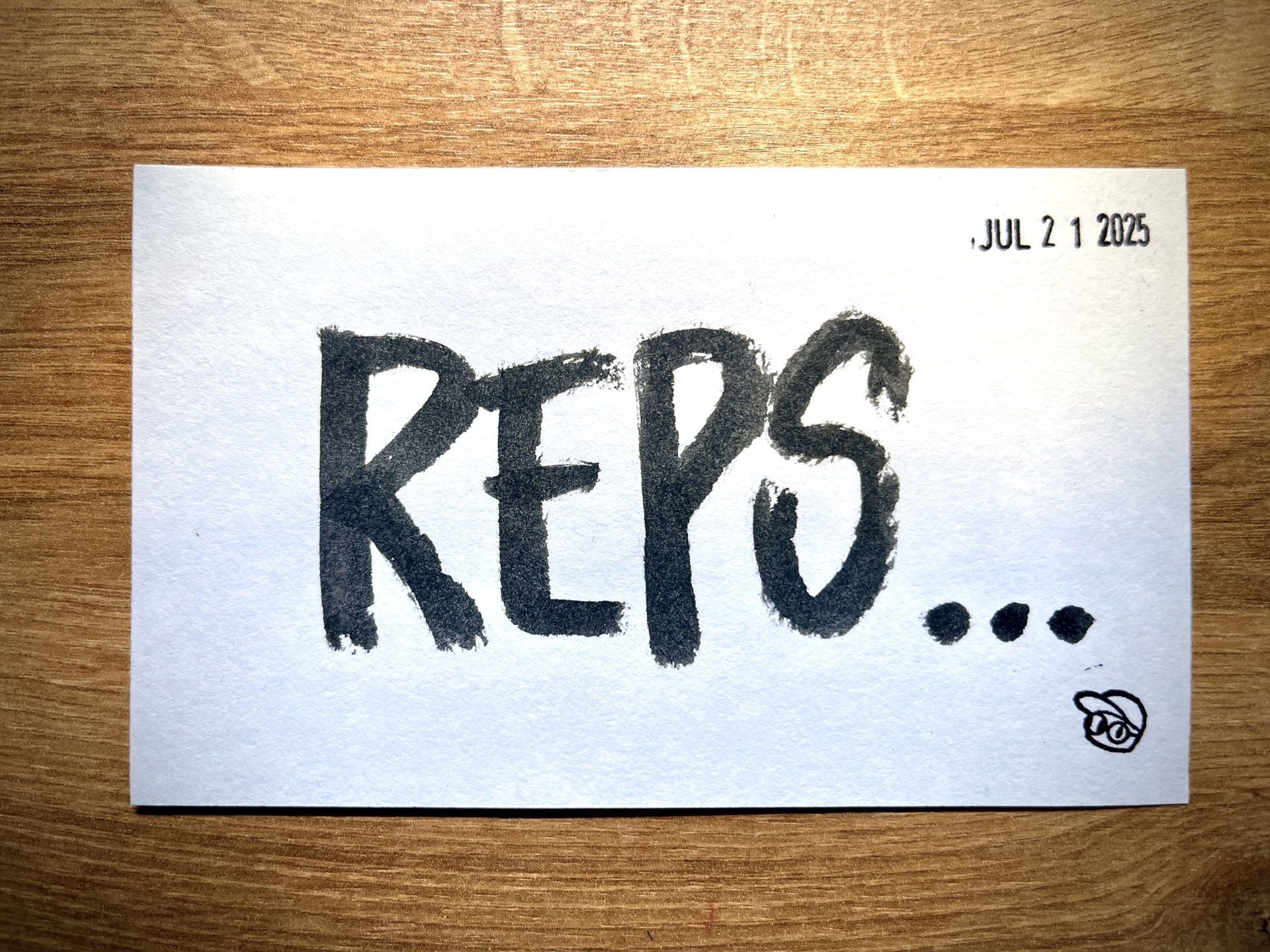Perfectionism
Vox
I don’t just use my voice to capture thoughts — I use it to find them. Speaking is often how I work through the mess to figure out what I really want to say.
(Re)Learn
Relearning isn’t failure. It’s the mark of someone still curious enough — and humble enough — to get better.
Mountain
A mountain of work. No shortcut. Just the slow, steady rhythm of sorting, shaping, moving forward — one thing at a time.
Fog
There’s no waiting for the fog to fade. The act of moving is what carves the road. The risk, the stumble, the forward step — that’s what makes the way visible.
Spirit
Great work doesn’t start with a perfect file. It starts with knowing what you’re trying to bring to life — and protecting that spirit, no matter how messy it gets.
Right
The hardest part isn’t always the number of decisions. It’s the pressure — the weight of trying to make the right one.
It depends
“It depends” is always true. It’s the easy answer. But for the hard questions — it’s rarely the right one.
Reps
You don’t need to add hours to get better. You just need to notice the reps you already do. Same work. Sharper reps.
Tech debt
Tech debt isn’t something to resent—it’s a receipt. A sign that something got made. That progress happened. Now it’s your turn to move it forward.
Tone
Tone is your fingerprint. Your feel. But it’s not a prerequisite. It’s the product of effort. Start before you “find your sound.” Then find it.
Speedrun
A speedrun forces decisions, cuts the fluff, and brings the real problem into view. You may not solve it—but you’ll always learn something useful.
Demo
Demos build trust—not because they’re perfect, but because they’re real. Show the thing. Let people feel it. That’s how you help people get it.
Start small
Start with what you can. Keep showing up. The rest will take shape—when it’s ready to take shape.
Bad writing
Every writer has thousands of bad pages in them. The faster you write them out, the sooner you find the good ones.
Mess
Making is messy. Not because you’re doing it wrong—because it matters. Mess isn’t a flaw in the process. It’s part of it.
